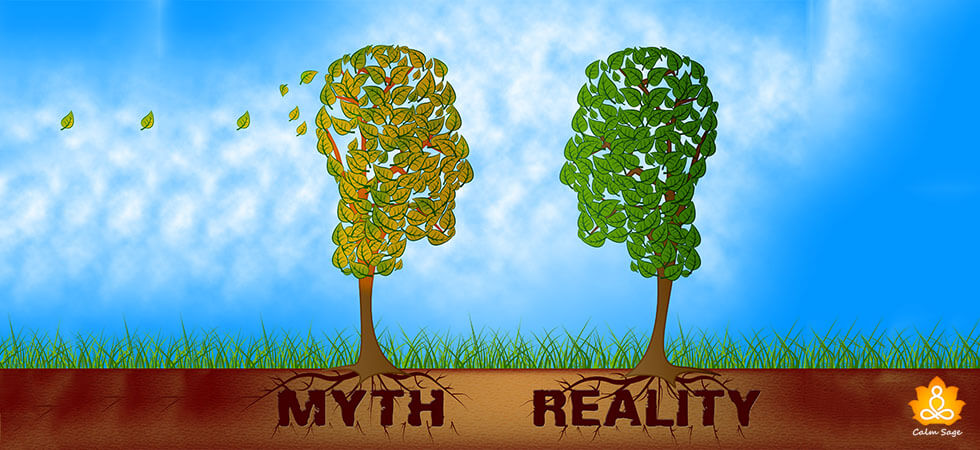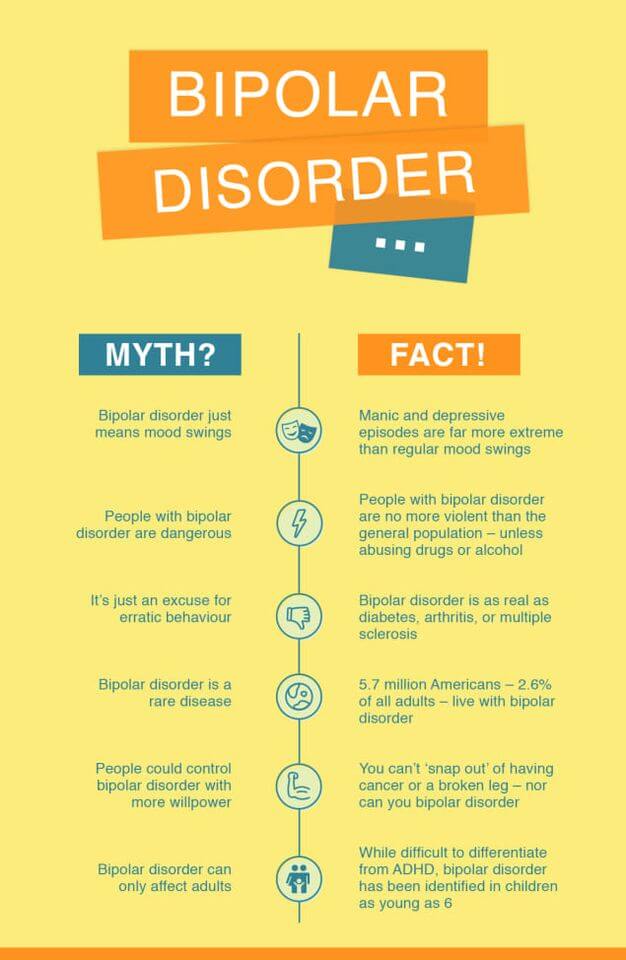7 Myths And Facts About Bipolar Disorder | How-To Help
When it comes to bipolar disorder and how to help someone with a bipolar disorder, many people are left misinformed. Check out the myths and facts about bipolar disorder.

When someone says ‘bipolar disorder’ our mind automatically conjures up an image of a person ecstatic one moment and sad the next. Pop culture and misrepresentations in the media have become our primary source for this kind of thinking.
Bipolar along with other disorders is a chronic illness and should not be taken lightly. People with bipolar disorder go through intense mood swings and irrational changes in behaviors. Part of understanding the disorder is to have a clear conception of what is a myth and what is a fact.

Below listed are the myths and facts about bipolar disorder that will help you understand the illness better.
7 Common Myths and Facts About Bipolar Disorder:
Myth 1: People with Bipolar can’t get well or lead normal lives
Fact: Living with bipolar is difficult but the chances of success in the personal and professional lives of a person are not dimmed. With treatment and support of family and peers, a person can lead a normal life.
Myth 2: Bipolar Disorder cannot be diagnosed
Fact: Bipolar can be diagnosed just as easily as any physical illness. Although, the tools of diagnosis are more psychological in nature and can easily be done by observing symptoms by family and loved ones.
Myth 3: Bipolar Disorder only affects the mood
Fact: Bipolar affects not only the mood of a person but it also affects the thought process, concentration, sleep patterns, self-esteem, and appetite. Bipolar can affect physical health that can cause severe migraines, high blood pressure, heart attack, or diabetes in a person.
Myth 4: Medication is the only treatment for Bipolar Disorder
Fact: While medication is vital it is not the only way of treating bipolar in a person. Therapy and self-help also play a huge role in the treatment of the disorder. Mood swings and other symptoms can be controlled by regular exercising, getting enough sleep, eating right, and surrounding oneself with positive energies.
Myth 5: The highs and lows of Bipolar Disorder are regular and equal
Fact: The mood swings that a bipolar person goes through are messy and unpredictable. Some people may only show the symptoms of mania while some may have depression and mania. For many these symptoms can only show once or twice a year.
Myth 6: Genes have nothing to do with being Bipolar Disorder
Fact: This disorder can run in the family. If someone in a family has bipolar, it is likely to be passed on. But genes are not always responsible. Many people with the illness don’t have a family history for bipolar disorder.
Myth 7: If you have Bipolar Disorder, you can’t have any other mental health problem
Fact: Many patients with bipolar show symptoms of ADHD, anxiety, substance abuse, eating disorder, and insomnia among others.
How To Help Someone with Bipolar Disorder?
Bipolar is a common but often misdiagnosed mental health problem. The frequent changes in mood, sleep and eating patterns, thoughts, and behavior in a person can create a disturbance in daily activities.
Everyone has a right to quality of life and appropriate support can change a person’s life. You can help by educating yourself and the people around you. Understand the terminology related to the disorder and if you or your loved one experience the above symptoms, reach out to a professional mental health care provider.
Also Read: What is Bipolar Disorder | Signs and Symptoms | Test and Treatment
Suicide and self-harm can be results of depressive episodes of bipolar or any mental health disorder. If you think you or your loved one is at risk, immediately reach the nearest helpline and ask for help. Listen to your loved one, stay calm, and reach out for help. There is no shame asking for help.
Patience and understanding of the situation can be helpful. Bipolar is a chronic illness and it can be managed through medication, therapy, and love and support of family and friends.
Fill your life with laughter and love. Always remember to find happiness in little things around you.
You May Like These Also:
Best Online Bipolar Disorder Support Groups
List of Mental Disorders – All You Need To Know!
Bipolar Disorder And Romantic Relationships | Support Your Partner





















Thanks for your approach
Most of the people are said that bipolar disorder needs medication only, but your blog cleared my all confusion. my brother has this problem. do you have any blog to overcome this disorder??